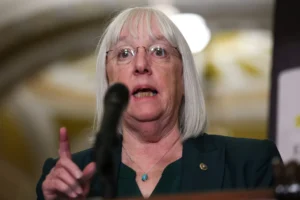Pan-Yoruba sociopolitical group, Afenifere, has criticized President Bola Tinubu’s claim that Nigeria would have gone bankrupt without his administration’s economic reforms.
Tinubu, while addressing former National Assembly colleagues from the aborted Third Republic, stated that the country had been spending beyond its means for 50 years, adding, “Nigeria would have been bankrupt if we had not taken the actions that we took, and we had to prevent the economy’s collapse.”
However, Afenifere, through its Publicity Secretary, Prince Justice Faloye, insisted that the economic crisis was self-inflicted. The group blamed the hardship on Tinubu’s decision to remove fuel subsidies before ensuring the full operation of the Dangote Refinery, which he had promised in his manifesto.
Afenifere, particularly the faction led by HRH Oba Oladipo Olaitan, has consistently opposed the subsidy removal and the naira flotation, attributing them to the country’s rising inflation and worsening economic conditions.
“This is not about politics but saving the nation from stifling poverty, which has led to increased kidnappings, robberies, and other crimes. The political class must realize that we are sitting on a gunpowder keg that will explode when the poor can’t take it any longer,” the statement read.
Faloye argued that Tinubu’s government should “never have floated the naira while we were still importing fuel, which accounts for a third of our import bill.” He maintained that the ill-timed policies had cost millions their jobs and lives, worsening the nation’s economic situation.
The group linked the economic downturn to long-standing subsidy removals dating back to the 1970s, noting that the worst effects have been felt under the Tinubu administration.
Afenifere also criticized the government’s approach to social welfare, stating that “education subsidies were removed in 1978, and now students have been placed on loans.” It urged the government to redirect savings from fuel subsidies into the forex market to stabilize the currency and lower import costs.
On housing, the group highlighted Nigeria’s homelessness crisis, pointing out that the 2025 budget only accounts for 20,000 houses, an insignificant figure compared to the 20 million homeless people in the country. “At this rate, it will take 1,000 years to solve homelessness unless the government builds at least 10,000 houses per day, as seen in countries like China and India,” Afenifere stated.
The group concluded by accusing the administration of being “ideologically clueless” on improving Nigerians’ living standards, urging a shift toward wealth creation rather than economic indices.



























